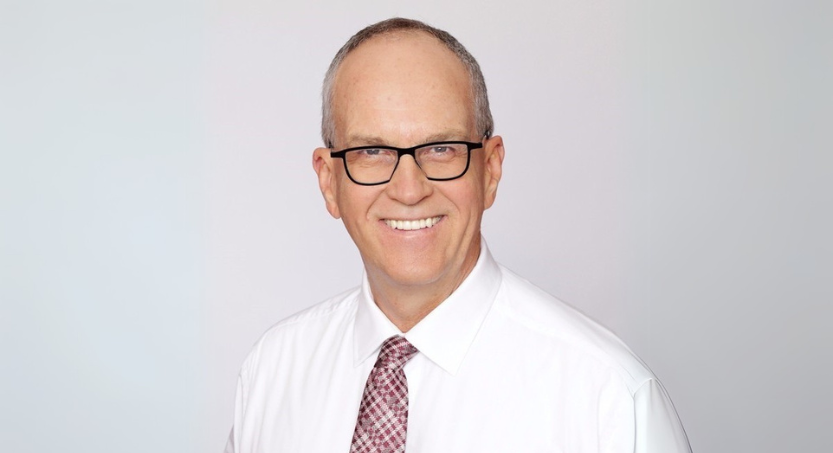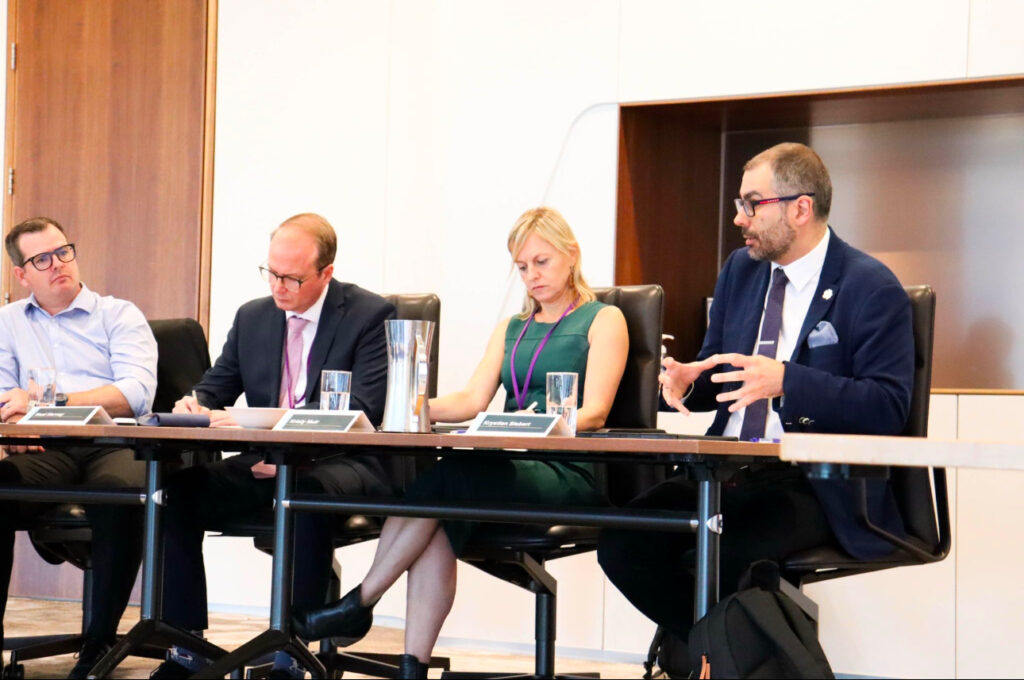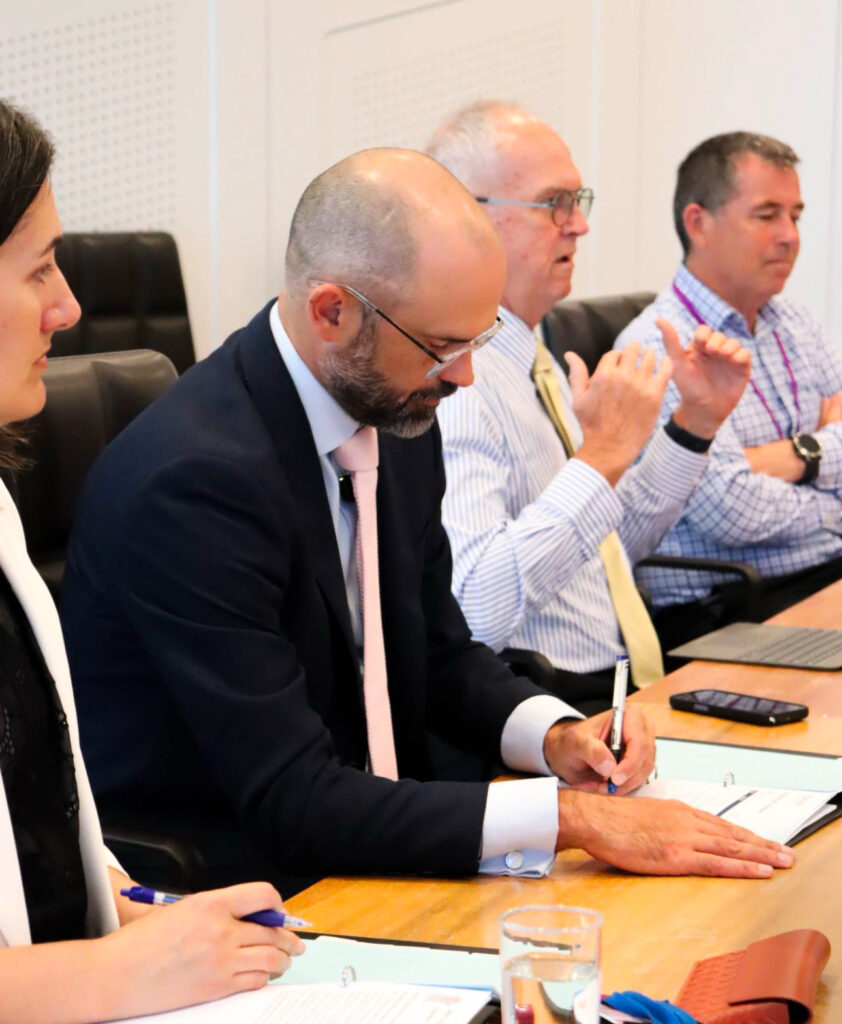Queensland government launches Office for Social Impact with $80m

The social enterprise sector has received an $80 million boost in Queensland with the state government’s announcement that an Office of Social Impact will be established. Philanthropist Allan English AM, along with Queensland treasurer David Janetzki, are two of the key drivers behind the collaboration between government, sector leaders and philanthropic funders.
Allan (pictured above) is Chair of the Social Impact Advisory Roundtable that convened for the first time in Brisbane in January to discuss the potential opportunities and challenges of upscaling the sector. The new Office of Social Impact will be based within the Queensland Treasury department and drive the development of for-purpose and social enterprises across the state via a Social Entrepreneurs Fund delivering $20 million a year over four years.
One of the first tasks of the roundtable is creating a roadmap for social enterprise and impact investing in collaboration with sector leaders, social entrepreneurs, philanthropic funders and investors.
Allan, Founder and Chair of the English Family Foundation, said: “I’m delighted to be part of this initiative and to be sharing the journey with so many talented human beings who share the same wishes and goals that I do. It’s the most significant initiative by a state government in the history of social enterprise. There’s nothing been quite like it. So it is a very significant step.”
A Philanthropic Roundtable was also convened in Brisbane and included participants from a cross-section of Philanthropy Australia members such as the Paul Ramsay Foundation (PRF), The Tim Fairfax Family Foundation, The Ian Potter Foundation, Minderoo Foundation, The Bryan Foundation, Macquarie Group Foundation, Judith Neilson Foundation, Westpac Foundation, Hand Heart Pocket, Romer Family Foundation and The Ian and Shirley Norman Foundation. Discussions focused on how philanthropic funders can work together with the Queensland Government to build up social enterprise in the state and enhance outcomes for the Queensland community.

Supporting this type of strategic collaboration between philanthropy and state government is a policy advocacy for Philanthropy Australia. Therefore, Krystian Seibert, Executive Director Policy and Sector Development, also participated in the meeting of the Philanthropic Roundtable.
Ben Gales will be leading the establishment of the new Office of Social Impact. The former Chief Impact Officer at PRF, his extensive philanthropic and government experience will deepen the collaboration’s work.
The roots of Treasurer Janetzki’s involvement go back to his time as a board member at Vanguard Laundry in Toowoomba. The laundry provides employment pathways for people with lived experience of disadvantage who had previously been marginalised in the workforce. He had to step down just prior to its launch in 2016 when he became an MP.
“We’ve got a unique set of circumstances where we’ve got a treasurer who’s been on a board of a social enterprise,” said Allan. “We’ve got a roundtable of experienced people in the sector looking to grow it. And then we’ve got philanthropists who are keen to fund this type of growth. So it’s a beautiful mosaic that’s sitting in front of us, and we want to make sure we maximize the opportunity.”
At the time of the announcement, Treasurer Janetzki said the power of purpose-led businesses to drive social outcomes was profound. “I’ve seen the power of social enterprise firsthand. Social enterprises often deliver greater benefits than a workplace or a service,” he said.
“They can change lives for the better, through improved education, health or employment outcomes. The Social Impact Advisory Roundtable will provide invaluable insights to government as we chart a course towards a thriving social enterprise sector.”
One of the goals of getting the philanthropists together was to find match funding opportunities, said Allan. “I know there are many foundations interested in partnering with government to manage the risk on projects, but also to leverage up opportunities in the capital stack, so I reached out to fellow philanthropists I’ve known over many years and invited them to listen to the treasurer’s vision. It’s a terrific showcase of what collaboration can look like.”

He said that philanthropy can do more to support social enterprise by growing the corpus that people have within the foundation space and looking at supporting impact investing because “that will flow through to opportunities that we’re creating here”.
Luke Terry, who established Vanguard Laundry and is now CEO of White Box Enterprises, talks of the importance of nurturing relationships over time, having met Treasurer Janetzki more than 10 years ago when he worked at Heritage Bank as their head legal council prior to entering politics. Vanguard Laundry is in the middle of his now constituency. After having to leave the board, Luke says Treasurer Janetzki very much stayed in touch.
“He couldn’t stay away,” said Luke. “He would come sometimes fortnightly to see how the laundry and staff were progressing. He’s consistently been concerned with the questions of ‘how do we put social enterprise on the map and how can we partner with philanthropy?’
“I don’t know if we would be where we are now without David’s passion for social enterprise and the community sustainability it can offer. Over many, many years of talking to politicians, the personal, first-hand experience really matters when it comes to getting support – and understanding what’s possible with interaction between government and philanthropy.”
Allan is optimistic about the initiative having impacts elsewhere, too. “If we can demonstrate in our communities a terrific return on the investment of the taxpayer dollar, hopefully other governments around Australia will have the confidence to make similar decisions in the future,” he said.